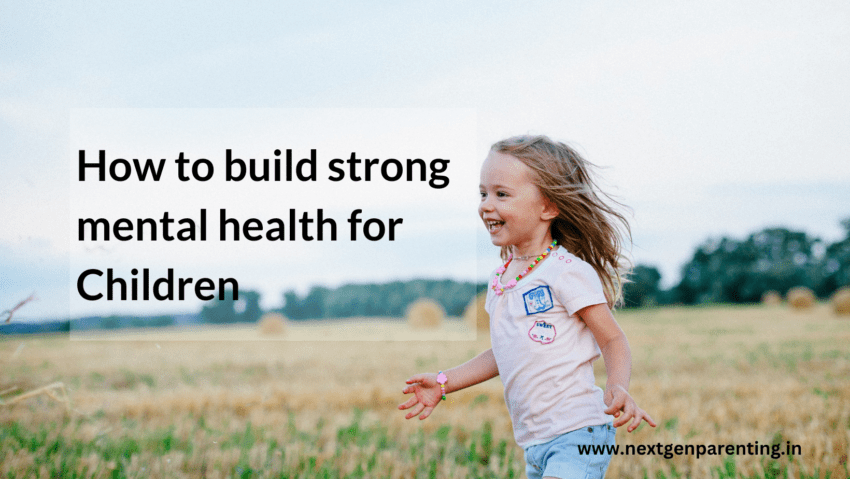On October 10th, we come together to celebrate World Mental Health Day, a reminder of the importance of raising awareness and supporting mental well-being. Just as we prioritize physical health, mental health deserves equal attention. As parents, it’s essential that we take care of our own mental health while also being mindful of our children’s emotional well-being.
In today’s fast-paced world, our lives can often feel overwhelming, filled with stress and constant demands. Our children, too, are navigating similar pressures—whether it’s academic challenges, career concerns, peer influence, or the desire to fit in and succeed in society.
This is why helping our kids develop strong mental health early on is crucial. This is only the beginning of their journey, and by fostering resilience and emotional strength now, we empower them to face whatever life throws their way with confidence and courage.
Together, we can build a foundation that supports their well-being, both now and in the future.
To make children mentally strong, it’s essential to nurture a combination of emotional intelligence, resilience, and a healthy mindset. Here’s an outline of key strategies that can be included in an article to effectively support children’s mental fortitude:

Help Your Child to Build Strong Mental Health
1. Develop Problem-Solving Skills
Encouraging children to solve their own problems helps build resilience. When faced with challenges, instead of stepping in immediately, guide them toward thinking of possible solutions.
This teaches them that difficulties are a part of life and that they have the power to overcome them. Gradually, they develop confidence in their abilities, learning to face adversity head-on.
Must Read Article- 8 Tips to Instill Good Habits of Finanaces in Children
2. Encourage a Growth Mindset
Mentally strong children believe that their abilities can be developed through dedication and effort.
Teaching children to embrace challenges, persist through obstacles, and learn from criticism promotes a growth mindset.
Emphasizing the importance of effort over inherent talent fosters resilience, helping them view failures as opportunities to grow rather than setbacks.
You might like- How to Deal with Child’s Boredom
3. Teach Them Emotional Vocabulary
Emotionally strong children understand and manage their feelings effectively. It’s important to create a safe space for children to express their emotions openly without fear of judgment.
Discuss and normalize to express emotions at home.
Teach them emotional vocabulary so they can articulate how they feel, and help them understand that emotions are natural and manageable.
This ability to regulate emotions prevents overwhelm in stressful situations.
Related Article- How to Teach Self-Regulation in Children
4. Encourage Independence and Responsibility
Children who are trusted to make age-appropriate decisions tend to become more mentally strong.
Providing children with responsibilities, such as household chores or managing small projects, instills a sense of competence and accountability.
They learn the value of perseverance and discipline, skills essential for overcoming life’s challenges.
As parents, our ultimate goal should be to foster our children’s autonomy, helping them become self-reliant and confident.
5. Teach Stress Management Techniques
Mentally strong children are equipped with tools to handle stress. Teach them techniques like mindfulness, deep breathing, or journaling to manage anxiety and calm themselves.
Engaging in physical activity, creative arts, or hobbies can also serve as healthy outlets for emotional stress, ensuring they don’t internalize or become overwhelmed by external pressures.
6. Promote Positive Self-Talk
Encourage children to develop a positive internal dialogue.
Mentally strong children are able to counter negative thoughts with constructive, realistic affirmations.
When they face criticism or failure, they should know how to focus on what they can control, rather than dwelling on setbacks.
Instilling optimism and self-encouragement equips children to push through tough times.
7. Model Mental Strength
Children observe and mimic adult behavior, so modeling emotional resilience and mental strength is crucial.
Demonstrating how to handle stress, bounce back from failures, and maintain a positive outlook during adversity teaches children that they, too, can develop these traits.
Parents and caregivers can inspire mental toughness by sharing personal experiences of overcoming hardship and failure.
Must Read Article- How Parents’ Unhealthy Food Habits Influence Child’s Eating Behavior
8. Allow for Healthy Risk-Taking
Encouraging children to take calculated risks and step outside their comfort zones is crucial for building confidence whether it’s trying a new sport, speaking up in class, or making new friends.
These experiences teach children how to navigate uncertainty and challenge themselves.
They become less fearful of failure and more willing to engage with new experiences.
You might like to read- Importance of a Strong Parent-Child Relationship
9. Encourage Gratitude and Empathy
Gratitude and empathy help children develop a balanced and healthy mindset.
When children regularly practice gratitude, they focus on the positives in their lives, which nurtures resilience during tough times.
Teaching empathy also helps kids develop emotional intelligence.
This allows them to build strong relationships and understand that they can handle challenges by relying on the people who support them.
10. Limit Overprotection and Helicopter Parenting
While it’s natural to want to shield children from hardship.
Overprotection can prevent them from learning to handle adversity on their own.
Mentally strong children are given the freedom to face challenges and make mistakes. This teaches them to cope with disappointment and failure while building the skills necessary to succeed in the future.
Conclusion:
Mental Strength is Built Over Time, it can not built in just a few days or weeks
Raising mentally strong children is about fostering resilience, emotional intelligence, and a growth mindset.
By creating an environment where children feel empowered to make decisions, manage emotions, and take on challenges.
You set them up for a lifetime of mental toughness and well-being.
Each of these strategies contributes to their ability to thrive emotionally and mentally, even in the face of life’s inevitable obstacles.
This framework offers a balanced approach to strengthening children’s mental resilience, covering emotional, cognitive, and behavioral aspects.
Thank you for reading this article. It takes a lot of effort to add value to it. We would like to hear from you, your thoughts, and experiences. Your words are meant to us.
If you get value from this article please share it with other parents to spread the word about mental health as it becomes pivotal for us, our children, and society.
Happy Parenting
